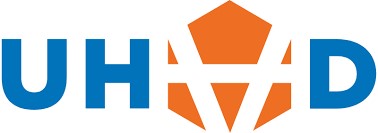UHV Design manufactures motion and heating components that can function in ultra-high vacuum (UHV) environments. This is of particular importance for proton and electron particle accelerators, such as those found at the Diamond Light Source, the UK’s national synchrotron facility. Such equipment requires products, especially linear shift movement devices, with a very high degree of reproducibility and accuracy of the positioning and speed of the probe. This is imperative at high speeds, so there is minimal disruption to the accelerator process.
UHV Design was unable to provide data verifying the reproducibility and accuracy of these linear shift movement devices, which prevented it from instilling their customers with confidence. Often a single accelerator facility needs many of these devices in order to install beam probes along beam paths which can be many kilometres in length. However, they are typically forced to buy only one initially and perform extensive tests themselves prior to putting through the full order. This makes the process more expensive, time-consuming and risky. Accelerators might choose to adhere to a flawed but familiar technology, rather than undergo this process to innovate.
Due to COVID-19 regulations, the events and on-site visits through which UHV Design typically engaged with customers were delayed, cancelled or hosted digitally. As a result, UHV Design asked NPL for assistance in finding specific data that would instil confidence in its linear shift movement product for one customer’s request, while also developing UHV Design’s in-house measurement skills to apply similar processes for other products moving forward. Having this data would enable UHV Design to provide their service to a wider range of customers in the accelerator market, and to give these customers confidence in the product.
NPL worked with UHV Design to define a feasible measurement method and choose appropriate measurement technologies. After successful tests, NPL recommended that UHV Design manufacture fixtures for the two sensors measuring the movement of the product probe, internally and externally, of the linear shift movement device. NPL designed software to acquire and compare the sensor outputs.
The resulting data helped UHV Design validate the performance of one of its products. NPL also produced a comprehensive report, including the employed measurement set-up and routine, so UHV Design can develop similar measurement processes for its other products.
In addition to providing one customer with the performance data, resulting in sufficient confidence in the product to put in a large order, NPL’s report explaining the testing methods will allow UHV Design to replicate the measurement process for its other products. UHV Design is considering making these tests part of its research and development programme, making high accuracy and reproducibility a core part of the product design at every stage.
The data resulting from these tests exhibits a level of testing ability that differentiates UHV Design from its competitors and enables the company to engage with existing and potential customers in a more systematic and data-driven way. In terms of expanding to new markets, the data will be especially critical for newer and smaller accelerators, who may not have testing capabilities themselves.
At the upcoming Accelerator Research and Innovation for European Science and Society (ARIES) conference, organised by CERN and attended by most of the accelerator market, UHV Design can now include the new data resulting from the M4R programme in its presentation, showing its enhanced capabilities. The accelerator market is worth millions per annum, and there are thousands of beams and beam line devices that could use UHV Design’s testing services in the future. UHV Design expects to grow by around 10% per year, with a significant proportion of this growth resulting from the data generated by the M4R work.
With our usual methods for reaching clients disrupted, we needed data that validated our products. Having worked with NPL before, I knew that the measurement expertise required for these product tests only exists at NPL. The measurement processes and skills we have gained from the M4R project will accelerate and increase the quantity of sales to new and existing customers
Nick Clark, Chief Scientist - UHV Design
UHV Design specialises in the design, manufacture, and supply of innovative market-leading HV and ultra-high-vacuum motion and heating products. Its primary focus is to provide high-quality, low-maintenance manipulation solutions for vacuum applications. Over 15 years of operations, UHV Design has developed ideas in conjunction with some of the most prestigious and forward-thinking scientific and technical institutions. Many of its products have become the industry standard.
